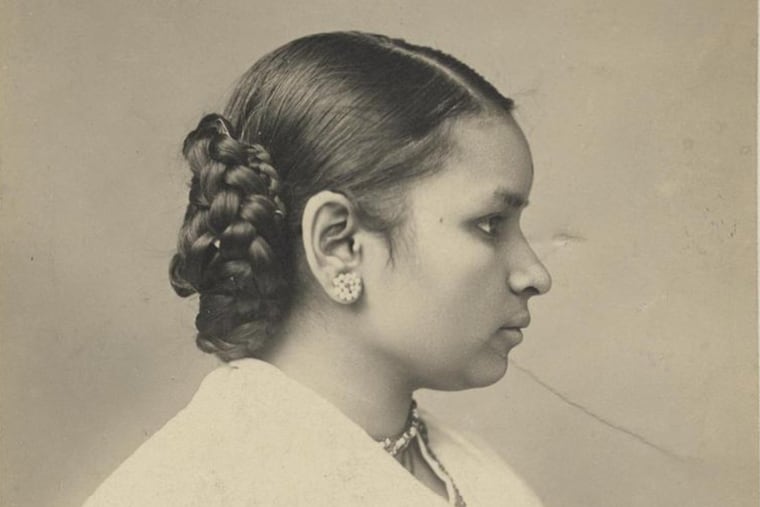The first-ever South Asian woman to become a doctor studied in Philadelphia
Anandibai Joshee, who graduated from the Woman's Medical College of Pennsylvania in 1886, receives new recognition on what would be her 159th birthday.

On Oct. 10, 1885, three women in Philadelphia donned elaborate outfits and sat for a historic portrait. The Woman’s Medical College of Pennsylvania — one of the first institutions in the world that allowed women to study medicine and become doctors — was hosting a reception for three new doctors from faraway lands: Anandibai Joshee of India, Kei Okami of Japan, and Sabat M. Islambooly of Syria.
Each woman broke a record, becoming the first female doctors from their respective countries at a time when women were typically barred from educational opportunities. The trailblazers represent a slice of women’s history in Philadelphia that reverberated across the world, inspiring generations of women to follow.
Philly-based South Asian American Digital Archive, which is dedicated to documenting and preserving the history of South Asian Americans, includes in its records a collection of letters, photographs, and archival material about Joshee’s life and career, mapping her journey from a rural community in the western Indian state of Maharashtra to her time on Arch Street studying medicine. On Sunday, SAADA will celebrate the doctor’s birthday as Anandibai Joshee Day.
“Dr. Anandibai Joshee’s story is one that should be known and celebrated by all Philadelphians, because it’s a history that could have only happened in our city,” said SAADA cofounder and executive director Samip Mallick. “She resolved to become a physician, and Philadelphia was one of the few places in the world where that was possible.”
Living under British colonial rule, Joshee wanted to become a physician to help the women in her community who were uncomfortable seeing male doctors. At 9 years old, she was married off to Gopalrao Joshee, a postal clerk 20 years her senior. At 13, she lost her baby shortly after giving birth, due to a lack of proper medical care.
“In my humble opinion there is a growing need for Hindu lady doctors in India, and I volunteer to qualify myself,” Joshee said in a speech at India’s Serampore College in 1883. Her progressive husband encouraged her ambition and the pair found her an opportunity to study without having to convert to Christianity (which was a common requisite at the time) in Philadelphia.
When she arrived in the city alone, she struggled to acclimate to the weather and food, often getting sick. She stayed with the medical college’s dean of faculty, Rachel L. Bodley. A record from the college library described Joshee’s struggles and observed that it was an unlikely and uncomfortable pairing between student and dean: “It is interesting to notice that Doctor Bodley expressed some qualms of conscience regarding her hospitality toward a so-called ‘heathen’ since she was in every respect a Christian, missionary-minded woman.”
Despite the challenges of being one of the few women of color in a medical school and the troubles with her health, Joshee graduated in 1886 and a few weeks later was appointed physician-in-charge for female wards in the Albert Edward Hospital in Kolhapur, India.
On Joshee’s graduation, Queen Victoria sent her a letter of congratulations: “Queen Victoria expressed her interest and appreciation when the first Hindu woman to receive a medical degree in any country — Dr. Anandibai Joshee — graduated from the Woman’s Medical College of Pennsylvania in 1886,” an information card in SAADA’s collection reads.
Sadly, only months after graduating, Joshee died of tuberculosis at 21, her promising career cut short before she could begin practicing. Her ashes were sent back to the United States at her request, and they’re placed in a cemetery in Poughkeepsie, N.Y.
“Anandibai Joshee’s extraordinary life and defiance of societal expectations deserve recognition and we are so excited to celebrate her legacy, and that of other trailblazing women in Philadelphia,” said Mallick. He encourages people to learn Joshee’s story, offering lesson plans that can introduce the historical figure to young students, pointing to SAADA’s archives where people can read about the legend in her own words.